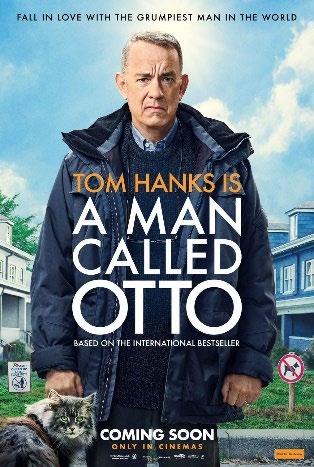THROUGHOUT THE CONFERENCE
The perfect place to take a break, try a creative self-care activity, or just enjoy the quiet space. Check out some fresh ideas with hands-on, simple strategies you can use to help decrease your stress. You can also find resources for self-care assessment and planning.
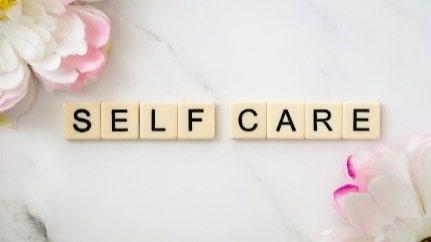
We encourage you to stop by during regular conference hours each day.
TRACK KEY
(A31)………………………..Act 31 Child Abuse Prevention (meets licensure requirement)
(AM)…………………………Administrative/Management/Macro
(C)…………………………….Clinical
(DP)…………………………..Direct Practice
(ETH)…………………………Ethics (counts toward licensure requirement)
(LGBT)……………………….LGBTQIA+ Affirming Practice
(PASWE)…………………… PASWE Recommended
(SJ/SP)……………………….Social Justice/Social Policy
(ST)……………………………Student
(SU)………………………….. Suicide Prevention (meets licensure requirement)
MONDAY, OCTOBER 23, 2023
7:00 AM
7:15 – 8:15 AM
Registration opens
Continental breakfast
Monday, October 23, 2023 8:00 – 9:00 AM | 1hr. | 1CE
(SJ/SP, ST, PASWE) - "We Shouldn’t Have to Struggle This Hard to Help Others": Student Perspectives on Challenges and Barriers in Social Work Education
Jen Silver, MSW, Program Administrator, Bridging Connection in Addiction Research, NIDA Clinical Trials
Network: Appalachian Node, Center for Research on Health Care, University of Pittsburgh
4
The SELF-CARE ROOM, sponsored by the Slippery Rock University MSW Program!
Field practicum is a cornerstone of social work education. A growing body of literature illuminates the conceptual, interpersonal, and practice skills students attain via field instruction. In contrast, few studies explore the challenges and costs borne by students engaging in field practicum. To address this knowledge gap, this presentation summarizes findings from a web-based survey of current and former social work students in Pennsylvania (N=408). This survey solicited student perspectives concerning the financial and socioemotional costs of pursuing a social work degree, and relatedly of engaging in field practicum. Findings underscore the wide range of challenges and support needs voiced by diverse student groups. Results should inform the efforts of professional accrediting bodies, universities, and field placement sites seeking to address the concerns of contemporary social work students particularly those in vulnerable and historically marginalized groups.
(DP) - Domestic Violence Service Adequacy in Urban vs. Rural Pennsylvania
Yosada Sharma, PhD, Professor of Social Work, Kutztown University of Pennsylvania
John Vafeas, DSW, LSW, Chair of the Department of Social Work, Kutztown University of Pennsylvania
Kealsey McNeil, LCSW, CAADC, Doctoral (DSW) student, Kutztown University of Pennsylvania
This presentation will review research in which the focus of the study was clientele's perception of the adequacy of domestic violence services and programs provided across the Commonwealth of Pennsylvania.
(C, DP, ETH) - The Biophilia Effect: How Social Workers Can Utilize the Natural Environment to Promote Client Health & Well-Being
Michelle D. DiLauro, PhD, LCSW, Associate Professor and Director of Social Work Field Education, East Stroudsburg University
Laurene Clossey, PhD, LCSW, ACSW, Professor of Social Work, East Stroudsburg University
This presentation will explore stimulation theories, the concept of the “biophilia effect,” and related practices utilizing the natural environment to enhance client health and well-being. Current evidencebased research on ecotherapy, forest bathing, and grounding will be discussed and resources will be provided to benefit participants and the clients they serve.
(DP, ETH) – Building Resilience Through Burnout
Selina Matis, PhD, LCSW, LICSW, Private Practitioner
The profession of social work recognizes that self-care is paramount and necessary for practitioners. Self-care alone is not enough to buffer against the hazards of helping (burnout, vicarious trauma, compassion fatigue). In this presentation we will discuss the impact of stress on the individual, the benefits and limits of self-care, and practical steps to build resilience in the face of stressors. We will also explore resilience and self-care through a lens of ADEI and identify strategies to create promote resilience and self-care for all.
(SJ/SP, ETH) - Taking on Tuskegee: The Impact of a Whistleblower
Jenifer Norton, PhD, MSW, Assistant Professor, Moravian University MSW Program
Whether through research course content on the development of research ethics or through media coverage referencing a major historical event that still impacts the African American community’s trust in medical professionals, most social workers have heard of the infamous Tuskegee Syphilis Study. What not all social workers know, though, is the role of a social worker, Peter Buxton, in the process to finally shut down the study after 40 years of unethical medical and research practices. This presentation will explore the historical context surrounding the Tuskegee Study, Buxton’s actions to draw attention to the atrocities committed, and the lasting impact of a whistleblower on research ethics and a crime against a community on public health trust.
5
(DP, ETH) - Animal-Assisted Crisis Response: Emergency Responders Share Insights
Batya G. Jaffe, PhD, Adjunct Professor of Social Work, Wurzweiler School of Social Work at the Yeshiva University of New York; Animal-Assisted Crisis Responder, Animal-Assisted Therapist
Animal-Assisted Crisis Response (AACR) is a beneficial intervention utilized at trauma scenes to achieve mental stabilization and provide support and comfort. How does AACR affect people present at a trauma scene? Through qualitative research, findings reveal the benefits this intervention provides to trauma survivors, bystanders, and first responders at trauma scenes. Furthermore, it illuminates deeper nuances of the meaning of AACR for responders and survivors; as well as the benefits and challenges of its implementation.
Monday, October 23, 2023
9:15 – 10:15 AM | 1hr | 1CE
(DP, ETH) - Alzheimer's & Other Dementia: Effective Communications Strategies
Diane Cowman, MHA, CDP, CAEd, Alzheimer's Association Community Educator and Director for Second Family Memory Care Center
Communication is more than just talking and listening – it’s also about sending and receiving messages through attitude, tone of voice, facial expressions, and body language. Communication is a way to express who we are and how we relate to each other. As the brain changes with Alzheimer’s disease or other dementia-related progression, people lose the ability to speak and decode language in the usual ways. The better we understand these changes, the better we can connect with people living with Alzheimer’s or other dementias throughout the course of the disease. We will explore tips on how to effectively communicate with those impacted by dementia and how you can help in your community increase awareness about this disease and support and resources.
(DP, ETH) - Breaking Down Barriers: Creating Inclusive Workplaces for Individuals with Neurodiversity
Nikita Maharjan, BS, MSW candidate, Graduate Assistant and Student Success Coach
The presentation will discuss the current situation and the undeniable issue of high rate of unemployment among the neurodiverse population, the need for policies to promote their hiring and possible ways to accommodate and reduce workplace bullying and retaliation against them. It will focus on the need to break down the barriers that the neurodiverse individuals are faced with at the workplace due to lack of education and training provided in the workplace to retain the neurodiverse employees.
(AM, C, DP, ETH, PASWE) - Student New Research Around Clinical Supervision
Brie Radis DSW, LCSW, MSS, MLSP, Associate Professor of Social Work, West Chester University
Supervision is foundational to social work practice. It is a source of education and support in the profession’s practice as well as during the pursuit of the BSW/MSW degree and clinical licensure. While the profession holds up supervision as an essential component of ethical and effective practice, there is little provided by way of training or education on clinical supervision in social work practice. Social work practitioners are often busy and do not have access to the literature due to journal paywalls so this presentation will highlight at least two frameworks and five recently published articles. This workshop will explore new research and ideas around clinical supervision and pull together evidenced based and research-informed techniques to use in clinical supervision. Please come to this presentation ready to share any fun, interesting, new ways or resources to connect with supervisees with social work colleagues.
6
(SJ/SP) - Cognitive Behavioral Therapy: An Intervention Strategy for Justice-Involved Clients
Lauren Cifoni, MA, MS, Forensic Caseworker 2/MSW Student, Widener University
This presentation on Cognitive Behavioral Therapy (CBT) is an innovative intervention strategy for justice-involved clients. The effective therapeutic practice of CBT demonstrates a valuable evidencebased practice that has proven to strongly influence the reduction of recidivism, even with the most challenging justice-involved clients. This presentation conveys diverse literature associated with CBT and justice-involved clients. Drawing upon the literature, this presentation will prove that using CBT as an intervention strategy will significantly influence the reduction of criminal behavior in correlation with mental health disorders. In addition, is intended that participants at this presentation will gain further knowledge in applying CBT intervention strategies to assist justice-involved clients with mental health disorders who continue to revolve around the doors of our criminal justice system.
(SJ/SP)
- Exploring Access, Barriers, and Connectedness of Charitable Food Networks in a Pennsylvania County
Dawn M Watson, MSW Student, Millersville University
Jenna Graeff, MSW, Millersville University, Director of Strategic Partnerships, Loft Community Partnership
Jennifer M. Frank, PhD, LSW, Assistant Professor, Millersville University School of Social Work
Social workers recognize that safe and affordable housing is a human right. This presentation will share the results of a qualitative, community-based research study about unsheltered homelessness that sought to better understand the use of public spaces and the needs of those experiencing unsheltered homelessness. We found that institutional disconnect between formal organizations and informal aid efforts seemed to undermine strategies for collaboration and that strategies that lack a human-first focus might act as barriers to engagement. Congregants shared that agencies where they felt valued and welcomed as individuals were most effective. This presentation will discuss research findings, implications for communities, and strategies for engaging stakeholders in reducing the barriers to serving individuals affected by homelessness.
(C, DP) - Less Acronyms, More Understanding
Rachel Warner, MSW, LCSW, Children's Hospital of Philadelphia
Heather DeLine, MSW, LCSW, Children’s Hospital of Philadelphia, Division of Neurology
Alexandra Bullock, MSW, LCSW, Children’s Hospital of Philadelphia, Outpatient Neurology
This presentation will review the use of medical and specialized jargon/ language and its impact on client/patient care and outcomes. It will include discussion of case studies and opportunities for audience participation, one medical-based example and one community-based example. The goal of this presentation is to increase awareness of the overuse of specialized jargon and facilitate discourse around potential interventions for future practice.
(SJ/SP) - Critical Conversations: Social Justice in Workplaces and Communities
Billie Jean Miller, PsyD, LSW, Med, High School Counselor, Southern York County School District
An inclusive panel discussion about how today’s social workers continue to promote our core value of social work. Panelists representing various fields of social work will discuss and respond to questions about how they support social justice efforts in the workplace and community.
7
Monday, October 23, 2023 10:30 AM – 12:00 PM | 1.5hr | 1CE
WELCOME TO 2023 NASW-PA ANNUAL CONFERENCE | OPENING KEYNOTE
NASW-PA is thrilled to be joined by the new national CEO of NASW, Dr. Anthony Estreet, PhD, MBA, LCSW-C. Dr. Estreet is an engaging and entertaining speaker, and we’ll bet that you’ll leave inspired and optimistic for the future of the profession.
Anthony Estreet, PhD, MBA, LCSW-C has been a professor and chair of the Master of Social Work Program at Morgan State University since 2013. Estreet is also founder and chief executive officer of Next Step Treatment Center in Baltimore, which provides substance use treatment and mental health services. He was vice president of the NASW Board of Directors but stepped down from that role after being considered a candidate in the search process. Estreet also served as president of the NASW Maryland Chapter and is an active member of the Council on Social Work Education and the National Association of Black Social Workers.
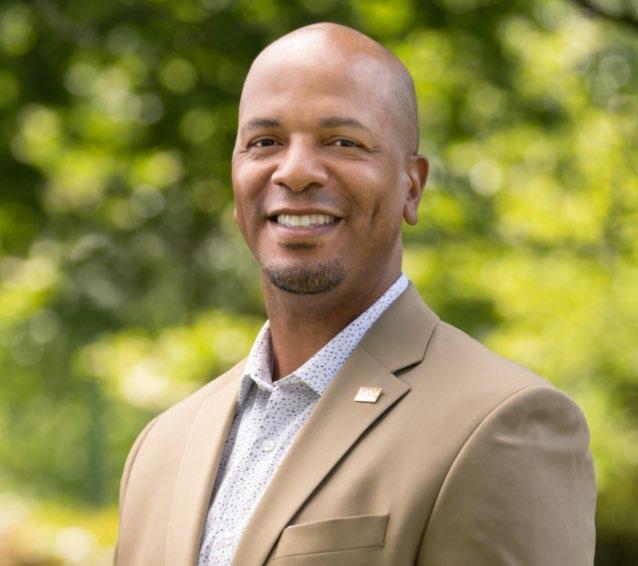
While at Morgan, Estreet was awarded more than $6 million in extramural grant funding for social work workforce development, research, and training. He also led the development and expansion of the first MSW program in the United States, and at a historically Black college or university, to have an area of specialized practice focused on addressing substance use disorders.
During his career, Estreet has also been tapped to turn around and expand an underperforming clinical program and speed up public health action to address HIV health disparities among men in Baltimore and Jackson, Mississippi. Estreet has published extensively in peer-reviewed journals, is a prolific national conference presenter and keynote speaker, and has two published books.
8
Monday, October 23, 2023 12:00 – 1:30 PM
12:00 – 1:30 PM Lunch with Exhibitors & Student Poster Presentations
12:15 – 1:15 PM PASWE Meeting
Monday, October 23, 2023 1:30 – 3:00 PM | 1.5hrs | 1.5CEs
(C, SJ/SP, LGBT) - Bias is Not a Bad Word: Identifying & Challenging Implicit Bias to Foster Anti-Racist and Anti-Oppressive Practice & Education
Kayti Protos, DSW, LCSW, MSW Program Director, Assistant Professor, Moravian University
We are all a little bit “-ist” or “-phobic” as we are all members of a society that struggles with systemic racism and oppression. Social workers are vulnerable to the same socio-political norms that shape our beliefs about diverse populations and marginalized communities that our students, colleagues, constituents, and clients struggle with on a daily basis. In this experiential, interactive workshop, participants will grapple with the topics of power, privilege, bias, and competing personal and professional values that contribute to implicit bias and structural racism. Discussion will feature the 2022 EPAS call to action from the Council on Social Work Education (CSWE) to address social work’s complicated history with racism and oppression. All participants are encouraged to embrace the classroom phenomenon of a “brave space” - moving beyond the realm of safety and comfort, and pushing towards critical conversations that create the capacity for change. Participants will receive instruction to replicate the activities of the session, serving as a resource for classroom education, professional development, and supervision.
(DP, SJ/SP, PASWE) - Critical Discussions: BIPOC Faculty and White Social Work Students: What Happens in the Classroom
Lia Richards-Palmiter, ACSW, PhD, BSW Program Director and Assistant Faculty, Marywood University, School of Social Work
Yerodin Lucas, PhD, Director of Institutional Equity and Inclusion, Title IX Coordinator, Marywood University
The presentation will explore and discuss the many nuances of BIPOC faculty efforts to engage with White students in the classroom. Power dynamics will be explored and discussed. The presentation will explore the nuances and issues that White students have to consider/work within the classroom taught by BIPOC faculty. ADEI concepts will be explored in these critical relationships.
(DP, SJ/SP, LGBT, PASWE) - "Queering" Social Work: Bringing Queer Theory into Social Work Practice
Stavroula Xinos, BSW, MSW Candidate, University of Pittsburgh
This presentation explores queer theory in relation to social work. Queer theory is a feminist field developed from LGBTQIA+ activism that dismantles traditional assumptions about gender, sexuality, normativity, and power. When applied to social work, queer theory can provide social workers with a framework to better understand power relations, oppression, identity, non-normativity, and intersectionality on micro, mezzo, and macro levels. Additionally, queer theory can enable social workers to increase their competency, humility, and empathy in working directly with populations that
9
are marginalized on the basis of gender and sexuality. Overall, queer theory can empower social workers and provide them with new methods for practicing compassion and social change.
(DP, ETH) - Embracing Ethics in Medical Social Work
Kristie Abbs, DSW, MEd, Assistant Professor, Director of MSW Field Experience, Slippery Rock University Embracing ethical challenges in medical social work allows clients to receive the best possible care in these settings. Social workers who understand and can identify ethical concerns in these settings have an opportunity to make positive changes leading to effective care. Social workers who learn strategies to deal with and uphold ethics in the medical field have an opportunity to ensure proper care is provided to all clients and ensure the same treatment is provided across cultural and other differences. Practicing ethics improves social workers’ practices ensuring equity and inclusion are provided to everyone.
(AM, SJ/SP, ETH) - If Not You, Then Who: The Ethics Related to Incivility and Bullying in the Workplace
Stephanie N. Perry, MSS, LSW, Crown Innovative Solutions, LLC
The responsibility to ensure civility and psychological safety in the workplace is essential to the performance and well-being of social workers expected to support others. Social workers, supervisors, and agency executives must create and maintain a healthy work environment. Experiences shared by social workers will analyze the ethics of civility and workplace bullying. The workshop will explore the impact of incivility and bullying in the workplace. Recommendations and best practices will be shared with attendees that are practical and easily implemented in the workplace.
(C, DP) – Paws and Effect: Breakthrough Animal-Assisted Therapy Interventions from a Clinical and Lived Experience Perspective
Patricia Flaherty-Fischette, PhD, LCSW, Board President, SoulPaws Recovery Project, Clinical Director of Carousel Connections and Research Associate, and Lecturer/Research Associate at Bryn Mawr College
Shannon Kopp, Founder, SoulPaws Recovery Project
Carly Ellman, LCSW, Assistant Professor of Medicine, Geisinger Commonwealth School of Medicine
This workshop will present information on research exploring Animal-Assisted Interventions (AAI), Eating Disorders, and SoulPaws Recovery Project. SoulPaws Recovery Project is an outcome of translational science at its best; SoulPaws Recovery Project is breaking barriers through the creation of accessible (no financial cost) recovery support for individuals with eating disorders. SoulPaw Recovery Project offers free, animal-assisted, clinician-led support groups for individuals struggling with eating disorders. This workshop relates to the Social Work Breaks Barriers conference theme in two major ways;
1. Exploration of Animal-Assisted Interventions (AAI) and eating disorders (specifically, targeting the commonality of regulation and relationships) is innovative, new research, and previously unexplored; 2. SoulPaws Recovery Project is an outgrowth from the recognition of the barriers within ED treatment and breaking barriers to treatment access. In addition to research and clinical expertise, participants will hear from Shannon Kopp on her lived experience in recovering from bulimia, depression and suicidal ideation, and the way she used her experiences with animals in her eating disorder recovery journey to inform the creation of SoulPaws Recovery Project.
(DP, PASWE) - A Unified Approach to Social Work Supervision
Edward P. Hanna, DSW, LCSW, Associate Professor of Social Work, Kutztown University
This workshop will present the perspective that social work supervision can be best utilized when viewed as a method of social work practice. This unified approach will be described and explained through a functional generalist interventionist lens that responds to the challenges and obstacles supervision encounters in the workplace and in social work education. Such a unified approach will also allow for more unified standards for the profession.
10
(AM, SJ/SP, ST, ETH, PASWE) - A Call to Action: Breaking Barriers in Social Work Education
Kathy Schank, MSS, LCSW, recently retired, Associate Professor and Social Work Program Coordinator, Delaware County Community College
Christopher Robinson, DEd, LSW, Assistant Professor and Program Director, Social Work at Penn State University Greater Allegheny
Michele Belliveau, MSW, LSW, PhD, Professor of Social Work, West Chester University
At a time when society needs qualified, professional social workers, we must re-examine our educational pathways to a social work career. Social workers have a responsibility to potential students to provide the foundational educational pathways that make a college degree in social work a reality. Social work educators have a unique responsibility to prepare incoming students to serve individuals, families, couples, and the community by honoring the NASW code of ethics and commitment to social justice. This is our call to action for breaking the remaining barriers to an equitable, inclusive, anti-racist education in social work. Now is the time to act to transform social work education (and completion) through financial equity in the transfer process. Inviting students from all backgrounds to attend or return to college, continuing to create anti-racist solutions that will strengthen the social work profession. We will explore the impact of history, along with the current policies and practices that help reduce barriers to transfer equity for community college students. We will brainstorm creating new alliances and collaboration among and between community college and undergraduate BSW programs. We will conclude with a draft of action steps for social workers working with PASWE and NASW-PA.
(AM, SJ/SP, PASWE) - Social Workers' Role in Public Policy and Political Action
Rebecca Zelner, MSW, Lobbyist, Greenlee Partners
Join me for a deep dive into learning more about the responsibilities of social workers related to public policy and political action. Far too often, social workers are forced to focus on daily tasks that can sometimes take away from bigger picture ideas. In fact, there are times when resolutions can be made through political action, but social workers may not know how to take action. In this workshop, you will learn about the importance of public policy and political action, and how to get involved in all levels of government.
(C, DP) - Introduction to Incorporating Horses for the Mental Health Treatment of People
Amber Klimovitz, LCSW, Gateway HorseWorks
Kristen de Marco, Equine Specialist, Owner and Operator, WorkHorse, Equine-Assisted Professional Development
For many trauma survivors, traditional talk therapy falls short or is rendered ineffective. In this workshop, participants will be introduced to the incorporation of horses in mental health treatment. Presenters will describe this unique, innovative approach to mental health treatment and trauma recovery by introducing Eagala, the model in which presenters are certified and the general structure of sessions. By sharing case stories, participants will hear accounts that affirm how and why horses are well suited for this metaphorbased trauma recovery and somatic healing. Additionally, participants will view the 2022 short documentary film, "Healing in the Open", produced by award-winning filmmakers about the work at Gateway HorseWorks. This film is raising awareness throughout the U.S. about the need for innovative mental health solutions, to better educate the public about the impact of incorporating horses for mental health treatment, and lay the foundation to increase access to this modality for all.
11
Monday, October 23, 2023 3:30 – 5:00 PM | 1.5hrs | 1.5CEs
(DP, LGBT) - LGBTQIA Mental Health and Implications for Practice
Tracy L. Leet, LCSW, Professor, Keuka College, Slippery Rock University, Pennwest Edinboro University
Meghan Odon, BSW Student at Slippery Rock University
An honest conversation about how adults and professionals can be affirming to LGBTQIA+ youth involved in the system. The importance of advocating for and building relationships with LGBTQIA+ youth as an ally or professional. How youths’ behaviors can often mask their mental health needs and create barriers to effective mental health treatment. Participants will walk through a case study to learn to identify the needs and treatment modalities to best suit LGBTQIA+ youth needs.
(C) - Breaking the One Year Rule: Can Sex and Recovery Co-Exist?
Elizabeth Kunreuther, LCSW, CAADC, Substance Use Care Coordinator at the Corporal Michael J Crescenz Department of Veterans Affairs Medical Center
Addiction and sexuality have a fraught and intensely interconnected relationship. The unpartnered individual in early recovery from substance use disorder (SUD) is usually counseled to refrain from intimacy and sexual activity. This popular approach commonly known in the SUD Recovery community as "the one-year rule” is reminiscent of the early eighties slogan “just say no.” As one well-known Recovery Program posts: "It is recommended that people who are still within the first year of their recovery should avoid beginning romantic relationships. This is because their priority needs to be staying sober." This statement is not evidence-based. More troubling, recovery programs often address sex as something to be feared creating a false choice between celibacy and recovery. The purpose of this session is to offer clinicians the option of considering a sex-positive response to Recovery.
(AM, DP) - Engaging Families in Developmental Monitoring & Surveillance: CDC's "Learn the Signs. Act Early" Materials, Resources, and More
Ilecia Voughs, LSW, Consultant for Home Visiting & Family Supports, Early Intervention Technical Assistance
Ashley Ankeney, Consultant for Home Visiting & Family Supports, Early Intervention Technical Assistance
Heather Powell, Consultant for Home Visiting & Family Supports, Early Intervention Technical Assistance
Prevention efforts for children and families come in many packages. If you are interested in learning more about how home visiting and family support services for families with children prenatal to age 5 are packaged in Pennsylvania to support children and families at the local and state level, then this session is for you. Let's take a dive into what the landscape in Pennsylvania looks like, how families can access services, supports families can receive, family engagement activities, and efforts to provide preventive and equitable service provision and access to services across the state. You will be equipped to share these supports with families in your organization.
Monday, October 23, 2023 5:00 – 7:00 PM
MEMBERSHIP MINGLE
Calling all NASW-PA members and potential members! Mingle with the Membership Committee, Board members, and others to discuss how you can get the most of your membership. A time to talk, network, and discover the many benefits NASW and NASW-PA offers while in a lounge style atmosphere. Light refreshments and giveaways provided.
12
Monday, October 23, 2023 6:30 – 9:00 PM | 2.5hrs. | 2.5CEs
OUR AMERICAN FAMILY | DOCUMENTARY AND DISCUSSION PANEL | 1hr. 37mins.
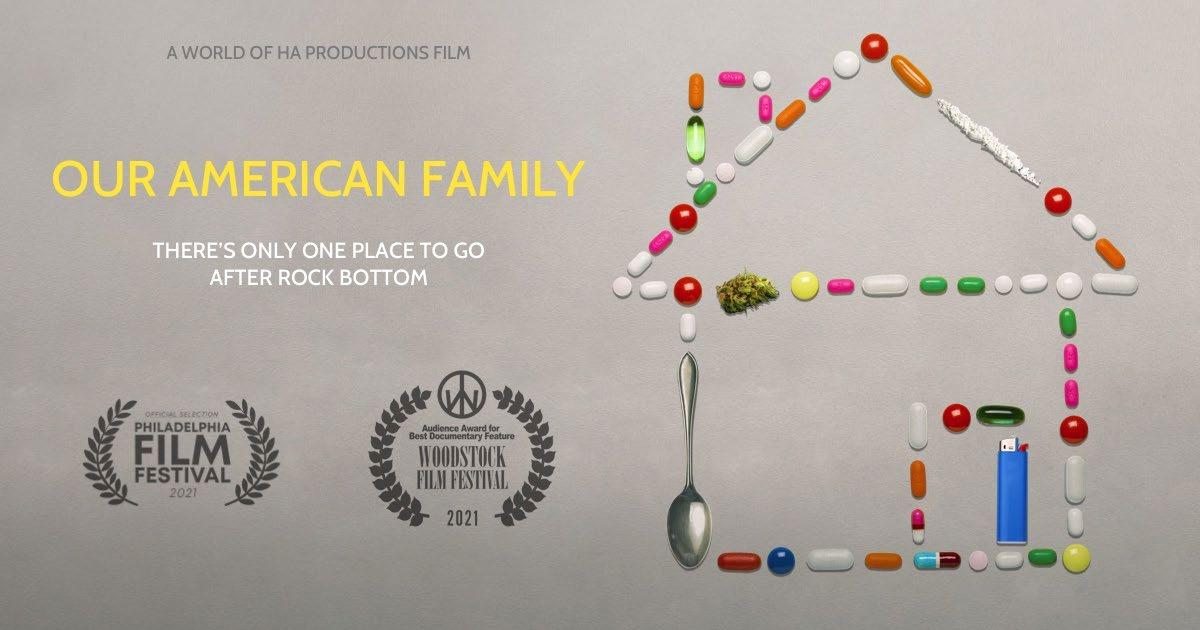
Addiction is an all-encompassing force in not only the lives of the afflicted, but also those around them. OUR AMERICAN FAMILY is a radically honest portrait of five family members grappling with the legacy of generational addiction as they fight to heal resentments and pull each other out of the deepest depths.
Following the documentary screening will be discussion and Q & A with family members from the film.
LINDA is the mother featured in Our American Family. Having had a parent who struggled with anorexia nervosa, she learned at an early age how to minimize addictive behaviors. With an ex-husband and children who have attended multiple treatment centers over a span of many years, she shares lessons learned with other parents and families. As the founder of Hummingbird Yoga and Massage, Linda teaches individuals and other instructors, trauma and recovery informed mind/body practices. She is passionate about sharing her experiences through writing and film, helping those affected by addiction, continuing to “show up” and work hard alongside her family members.
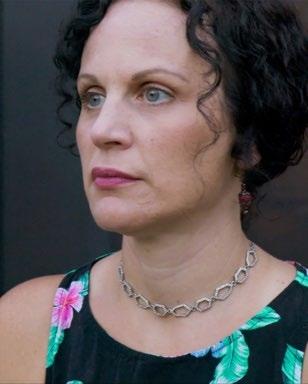
NICOLE is the oldest child featured in Our American Family. At one time, she was considered a “chronic relapser” with a heroin addiction. She attended over 15 treatment centers before achieving long-term sobriety. Today, Nicole has earned over five years of sobriety and works to help others as a certified recovery specialist. She has helped over 1000 people gain access to treatment. Her goal is to let other women and mothers know that no matter how low they are, they can “get there” and live a better life. She continues to work on herself and makes a decision every day to not use or get high.

13
(DP, PASWE) - A Toxic Interaction: Dysfunctional Familial, Professional, and Societal ‘Leadership’: The Self and Burnout
SaraKay Smullens, LCSW, BCD, CGP, CFLE
SaraKay Smullens, a devoted NASW member, has missed very few of our conferences throughout her over 50-year membership. This presentation will be based on research from her most recent book, Burnout and Self-Care in Social Work, ed 2 (NASW Press, 2021). Five arenas where burnout exists and four psycho-social "attendant syndromes" that lead to it will be presented. SaraKay believes the tech revolution, despite its positives, has led to continuous contact devoid of connection, and connection will be what will be strived for in a brief period together. She will emphasize the Self in her discussion of Self and Societal Care; the differences between depression and burnout from a social work perspective; and the importance of creativity and risk-taking in each life. She explains: "Life itself, my delineations are not neat. They are presented for self-awareness and subsequent self-care. If neat categorization is your goal, this is not the session for you." Hers will be a candid presentation, encompassing what over 50 years on front lines and research has taught her. It will also be an unabashed love letter to social work.
(AM, C, DP, ETH) - Embodying A Coaching Mindset for Social Workers
Liz Lasky, PhD, LCSW, ACC, Founder, The Coach Training Program for Helping Professionals
Are you interested in coaching but want to do it ethically? Are you ready to expand your skills and keep up with current trends to meet client needs? A foundation of being a good coach is being able to embody a coaching mindset. This workshop will teach you how to cultivate a coaching mindset by teaching you exactly what coaching is, how it is different from therapy, and how to bridge coaching and social work.
(SJ/SP, ETH, PASWE) - Righting These Wrongs: Notes from the Desk of an African American Social Worker
Alma J Carten, PhD, ACSW, LCSW, recently retired, New York University Silver School of Social Work
The workshop presents highlights from the soon-to-be published professional memoir of the presenter that chronicles her career in agency-based practice, government and academia as it evolved over four decades of reforms in US social welfare policy, the profession, and social work education.
(C, DP, ETH) – Nature-Informed Social Work: Evidence-Based Macro and Micro Perspectives
Zoe Jack, LCSW-C, Director of the Center for Nature Informed Therapy; Psychotherapist; Chesapeake Mental Health Collaborative
Are you curious about how a relationship to the natural world influences your practice as a social worker? This workshop will explore the evidence basis behind human beings' connection to the natural world and its impact on overall health and wellbeing. Participants will walk away from the workshop
14 TUESDAY, OCTOBER 24, 2023 7:15 – 8:15 AM Continental breakfast Tuesday, October 24, 2023 8:00 – 9:30 AM | 1.5hrs | 1.5CEs
knowing why a connection to nature is important for health both from micro and macro perspectives and with a sampling of interventions to use in their work with clientele and/or organizational and political advocacy. Attendees will learn about gaps in nature access due to race, and tools for advocacy to reduce the nature gap affecting mental health.
(DP,
ETH) - Meeting the Client Where They Are: Revisiting Self-Awareness
Viviana X. Lucabeche, PhD, LCSW, Associate Professor, Bloomsburg University of Pennsylvania
Kevin M. Lally, DSW, LCSW, Assistant Professor, Social Work at Bloomsburg University of Pennsylvania
Research indicates that clinicians working with clients referred for substance use disorders (SUD) are more likely to punitively judge their clients. This judgment presents a barrier to the therapeutic relationship and can undermine recovery efforts. Stigma experienced during the counseling relationship hinders the internalization process necessary to engage in treatment by undermining hope and selfesteem. Client motivation toward positive change is an interpersonal process, and social workers are uniquely positioned to provide supportive interventions that promote resiliency and advocacy. A didactic presentation will include current research on the effects of stigma on treatment retention and completion. Interactive self-reflection and stigma-reducing techniques will be explored via small group exercises. Time will be allowed for audience participation and questions. PowerPoint presentation handouts and reflexivity resources for professional self-care will be distributed.
(C,
DP) - Autism and Substance Use Disorder: A Dual Diagnosis Hiding in Plain Sight
Elizabeth Kunreuther, LCSW, CAADC, Substance Use Care Coordinator at the Corporal Michael J Crescenz Department of Veterans Affairs Medical Center
Recent research indicates those with an autism spectrum diagnosis (ASD) may have higher rates of substance use diagnosis (SUD) than the general population. Traits associated with ASD: sensory challenges, social deficits, rigid behaviors, and rule-following have been assumed protective factors for preventing the development of a SUD. Though living with undiagnosed ASD might lead an adult/adolescent to self-medicate, the current trend of mainstreaming those with an early autism diagnosis presents a host of unanticipated challenges. The presenter will give a brief overview of the protective and risk factors of ASD for developing an SUD, the use of substances to self-medicate, and some of the behavioral connections of both diagnoses such as perseveration and a desire for routine. The presentation will also cover prevention, identification/screening, and treatment options for those dually diagnosed offering an interdisciplinary approach to supporting individuals with both an autism and substance use diagnosis while honoring their self-determination.
(C, DP, SJ/SP, LGBT, ETH) - "Letter Writing and Advocacy: An Ethical Approach to Providing Affirmative Care to TGNBI Clients"
Wednesdae Reim Ifrach REAT, ATR-BC, ATCS, CLAT, NCC, LPC, LCMHC, LPCC, Director for Walden Behavioral Care’s Rainbow Road, Co-owner, and Operator Rainbow Recovery
Kayti Protos, DSW, LCSW, Program Director, Assistant Professor at Moravian University
This presentation addresses the barriers Transgender and Gender Diverse people face as a result of letter writing. Many Trans and GD+ client will need multiple letters from social workers in order to obtain HRT, top and bottom surgery and a multitude of other medical and mental health needs. This is an opportunity to learn how to break down the barriers of letter writing through learning not only how to write a letter that will successfully support the client but can be used to aid in advocating for the client. Other topics such as weight stigma, implicit bias in the medical profession and the ethic of letter writing will be addressed.
15
Tuesday, October 24, 2023 9:45 am – 10:15 AM | 30mins. | .5CEs
(SJ/SP) - People & Places: Breaking Barriers in Community Need, Unsheltered Homelessness, and the Use of Public Space
Rachel E. Preibisch, MSW Candidate, School of Social Work, Millersville University
Jenna Graeff, MSW, Millersville University, Director of Strategic Partnerships, Loft Community Partnership
Jennifer M. Frank, PhD, LSW, Assistant Professor, Millersville University School of Social Work
Dawn M Watson, MSW Student, Millersville University
Social workers recognize that safe and affordable housing is a human right. This presentation will share the results of a qualitative, community-based research study about unsheltered homelessness that sought to better understand the use of public spaces and the needs of those experiencing unsheltered homelessness. We found that institutional disconnect between formal organizations and informal aid efforts seemed to undermine strategies for collaboration and that strategies that lack a human-first focus might act as barriers to engagement. Congregants shared that agencies where they felt valued and welcomed as individuals were most effective. This presentation will discuss research findings, implications for communities, and strategies for engaging stakeholders in reducing the barriers to serving individuals affected by homelessness.
(AM, PASWE) - Using Feminist Theory in Creating Research Focus Groups in a Non-Profit Organization
Kimberly Hardner, DSW, Assistant Professor and BSW Program Director of the Social Work Department at Pennsylvania Western University of Pennsylvania at Edinboro
The purpose of this qualitative study was to explore the experiences of staff at a non-profit social service agency in the United States through a feminist lens as the organization made a commitment to implement trauma-informed care (TIC). The application of feminist theory along with the principles of TIC (safety, trustworthiness, choice, collaboration, and empowerment) allowed researchers to create an environment where participants (employees) felt comfortable sharing their experiences through a series of four focus groups (N = 17 participants in total). While all workers reported feeling both empowered and supported by the organization through the implementation of TIC, direct-line workers did not feel they had as many opportunities within the organization to embrace the principles of choice and collaboration as middle-management and administrative level staff. The results of this study were shared with administrators, who were receptive and recognized that a true commitment to the principles of TIC requires the ability to listen to all feedback, both positive and negative, to implement TIC policies and practices that impact all levels of organizational staff.
(SJ/SP) - Roundtable Discussion with NASW-PA Lobbyists
Angie Armbrust and Natalie Cook, NASW-PA Lobbying Team, McNees, Wallace, and Nurick
This roundtable will be led by NASW-PA’s lobbying team and is an opportune time to get legislative questions answered or to share your stories of why different legislative priorities are important to you personally and/or professionally!
(DP) - Narcan & Naloxone: Overdose Prevention Training
Julia Hilbert, MSW, Overdose Prevention Specialist, Prevention Point Pittsburgh
This training will discuss what to do when someone experiences an opioid overdose, how to use Narcan nasal spray. It will provide an overview of other forms of naloxone (intramuscular, kloxxado) as well as provide information about how to care for someone following a reversed overdose.
16
Tuesday, October 24, 2023 10:30 AM – 12:00 PM | 1.5hrs. | 1.5CEs
SELF-CARE STRETCH!
With a full day of educational sessions, it’s important to take time for self-care. All workshops held during this session incorporate personal self-care and learning experiences, providing a break that will include movement, play, and engagement. Additionally, there will be an opportunity to get outside (weatherpermitting) and have some fun with some planned games and activities.
(C, DP, ETH) - Fast Forward! Ethics of Self-Care and Play: An Update
Rebecca Suglia, LCSW, Counselor at Concern, Partner and Therapist at U3: Body, Mind & Spirit
Katherine A. Shecora, LSW, EAP Counselor (SEAP) at UnitedHealth Group
Good self-care isn’t just about feeling good. We need to take time off to play, to rest, to breathe, so that we can truly be whole and present – not just when we’re working, but in all the parts of our lives! When Social Workers take time for self-care, we are better social workers, better employees, and are capable of making sound ethical decisions. In this session, we’ll talk about the brain’s and body’s response to play, and how it affects cognition and decision making.
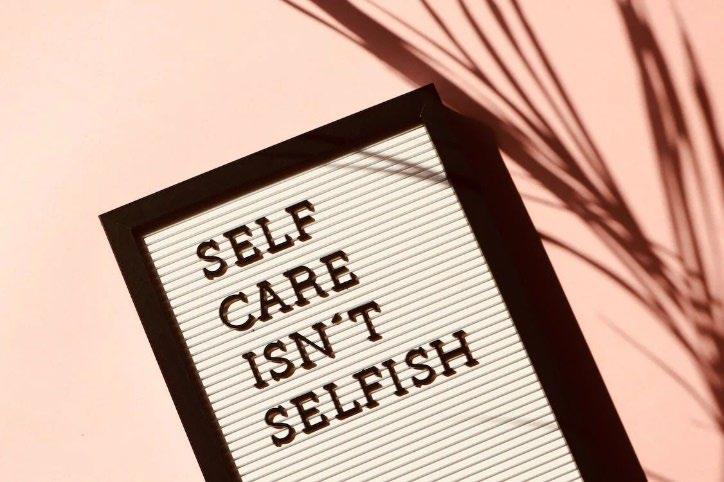
(DP) - Focus on Self-Care: Create a Vision Board
Tami Micsky, DSW, LSW, CT, Assistant Professor, MSW Program Director for Social Work Program at Slippery Rock University of Pennsylvania, Adjunct Faculty in MSW program at Walden University and Human Services program at Southern New Hampshire University
Tracy L. Leet, LCSW, Professor at Keuka College, Slippery Rock University and Pennwest Edinboro University
Denna Hays, DSW, LSW, Assistant Professor of Social Work at Slippery Rock University
Vision boards are a creative and powerful tool to put hopes and goals into “focus.” Join this session to create a vision board that will inspire self-care and wellness practices. *Materials provided.
(C) - Sand Tray Therapy
Kristie Jo King, LSW, CDP, Be Free Counseling, Therapist
This session is for anyone seeking to expand their toolbox as participants will learn the foundation of sand tray therapy and its history. Participants will be able to observe a sand tray session and learn the process from start to finish.
JUST 4 FUN! PLAY for 90 minutes!! [NOTE: NO CEs]
Take a break and get outside to stretch, compete, and enjoy some fun yard games. This activity will be loosely guided but primarily an opportunity for unstructured personal time.
17
Tuesday, October 24, 2023 12:15 – 2:15 PM | 2hrs. | 2CEs
PACE LUNCHEON AND PLENARY SESSION
Join our PACE luncheon for an important discussion of legislative advocacy issues at the federal and state level, in addition to the political issues related to the upcoming 2024 election. Hear from our lobbyists, staff, and volunteer leadership for updates on our advocacy and ways that you can help advance NASW-PA’s legislative agenda.
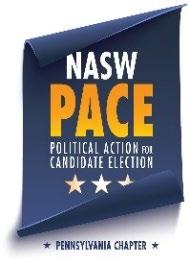
Then, our special guest, Anette Nance, MSW, Executive Director of Governor Shapiro’s Advisory Commission on African American Affairs, for an address that will focus on highlighting the crucial role of macro social work in promoting societal change and addressing systemic issues. There will be emphasis on the significance of political knowledge for social workers, enabling them to navigate complex policy landscapes and advocate for equitable policies. Also underscoring the inseparable connection between social work values, such as justice and compassion, and the pursuit of macro-level interventions. Moreover, it will explore the importance of breaking barriers and challenging systemic oppressions that hinder social justice efforts. Participants will leave with a renewed commitment to integrating macro practice into their work, equipping themselves with political acumen, upholding social work values, and actively dismantling barriers to create lasting positive change at a broader societal level.
Anette Nance is a community-engaged leader and decorated veteran from Auburn, GA and of Haitian descent. With eight years of dedicated service in the United States Marine Corps, including an Operation Enduring Freedom deployment, she exemplifies honor and commitment. Anette holds a Master’s in Social Work with a focus on community organization and social action, complemented by a certificate in Human Services Management from the University of Pittsburgh. Her advocacy work has earned her recognition at local, regional, and national levels, including being a finalist for the 2020 Student Veteran of the Year award. Anette actively serves on nonprofit boards and held the esteemed role of Commissioner on Governor Wolf's Commission on African American Affairs. Her contributions to the Pittsburgh region have been widely celebrated, with honors such as PUMP's 40 Under 40 and the Rising Star Distinguished Alumni Award from the University of Pittsburgh School of Social Work. Beyond her professional pursuits, she is a woman of faith, a wife, and a devoted mother of two, inspiring others to reach their full potential with her purpose-filled mindset.
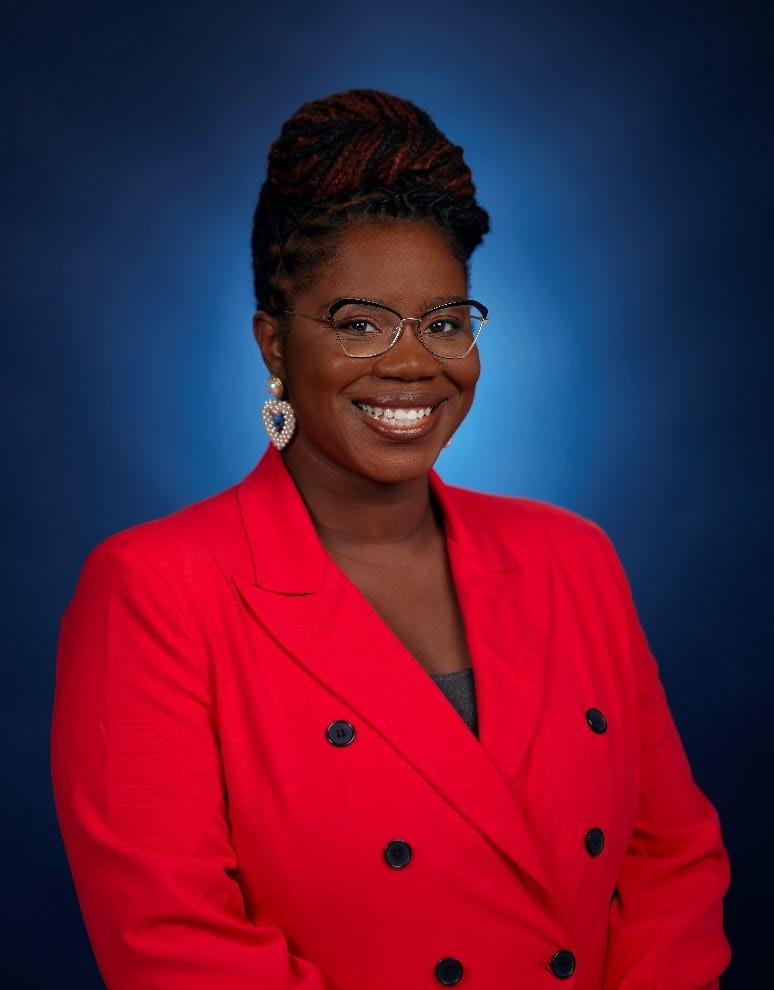
18
Tuesday, October 24, 2023 2:30 – 3:00 PM | 30mins. | .5CEs
PEER2PEER LEARNING SESSION
Peer2Peer Learning Session are an opportunity to gain learning, generate ideas, share scenarios, and otherwise engage with your peers around important topics. Pick the area that most interests you and participate in (and contribute to) this facilitated discussion.
TOPICS FOR PEER2PEER:
• A.I. Implications for Social Work
• Resolving Ethical Dilemmas
• Political Social Work and the 2024 Election
• Peer Network Group for Social Workers of Color
Tuesday, October 24, 2023 3:15 – 4:15 PM | 1hr. | 1CE
(DP, ETH) - Age Futurism: Lessons Learned from Afro Futurism
Norma D Thomas, DSW, LSW, ACSW, Part-Time Faculty Member, Widener University Center for Social Work Education
Raina León, PhD, MFA, MA, Author, Poet and Faculty Member, Saint Mary’s College of California
Age Futurism is based on the concept of Afro-Futurism. Afro-Futurism means using the intersectionality of race, innovation, and technology to visualize a future where people of African descent are liberated fully and integrally part of society with full equity. Age Futurism supports the same outcomes, applying them to older adults across the diverse spectrum. In addition, it is viewing our older adults as walking ancestors who are fully engaged in society. This encourages us to be aware of our intergenerational responsibilities and live with a generosity that dismantles individualism. When we do that, we broaden our vision of the possibilities of what growing older in our society can and should be. This workshop is designed to assist participants in constructing a future they want to see for themselves in their older years and to change the communities now so that older adults are engaged at all capacity levels. It encourages us to be proactive and visionary versus reactive and thinking in the status quo.
(DP) - Social Worker Burnout: Moving Beyond a Micro Perspective
Lauren Aikin-Smith MPH, MEd, MSW, LSW, CHES, Therapist, Counseling & Wellness Center of Pittsburgh Autumn Walsh MSW, LSW, CCTS
Social workers are at high risk for burnout, an ethical and competency issue that negatively impacts clinicians, clients, and employers. Despite having a significant impact on all levels, the majority of societal conversations about burnout prevention are often centered on the micro perspective and the onus of responsibility falls on the individual. Reliance on the individual social worker to combat barriers to self-care and prevent burnout on their own, in turn, creates its own barrier. Through surveying the employees at our organization, we turned the conversation to include the mezzo perspective of the organizational leadership and their responsibility to implement interventions through resources for all employees to offset job demands and positively impact well-being, burnout, and job satisfaction. In this workshop we will discuss background information on clinician burnout and well-being, the Job Demands-Resources (JD-R) model used in the survey to highlight the mezzo perspective of burnout,
19
interventions implemented, outcomes from the interventions, and information on how to advocate on the mezzo and macro levels for support in clinician burnout prevention.
(SJ/SP, ETH) - Find a Way or Make One: The Contributions of HBCUs to Breaking Barriers in Social Work Education
Jeanne Bertrand Finch, DSW, LCSW-R, in Private Practice. Retired from School of Social Welfare Stony Brook University
Alma J. Carten, PhD, ACSW, LCSW, recently retired from full-time faculty of New York University Silver School of Social Work
Current training for social work practice includes a revitalized focus on issues of power, privilege, diversity, equity, and inclusion. Moving forward requires correcting omissions in our professional heritage in this arena. Examining the race work of early leaders and educators during the era of segregation enriches our focus and provides a vision for tackling current obstacles. This presentation engages participants in analyzing these early efforts and deciphering lessons learned for application to our methods of recruiting and preparing practitioners for today’s practice context.
(DP)
- A Person-Centered Language Approach to Mental Health Stigma
Rachel Stauffer, MSW Candidate, Temple University
Amy Roth, DSW, LSW, MSW, School Social Worker with IU13 in Lancaster, PA
We will discuss person-centered language approach to mental health stigma. Our focus is to gain awareness of our choices in the words we use while engaging in discussion about stigma. Furthering our understanding of stigma will guide our practice and enrich the lives of students with mental health disorders. Participants will walk away with basic strategies and techniques to increase awareness of language and how that language impacts our students.
(C, DP, ST) - Treating Invisible Wounds: Understanding the Impact of Online Toxicity in Online Video Games
Stephanie Diez-Morel, PhD, LCSW, MCAP, IGDC, BACC, Founder, Reboot & Recover, Associate Professor of Graduate Social Work at Pennsylvania Western University, Edinboro Campus
Online toxicity in video gaming is, in essence, a form of bullying and harassment specific to video gaming. Online toxicity can range from excessive use of profanity to hate speech. The psychological and physical impacts of online toxicity go well beyond the virtual world. This workshop will introduce participants to gamer specific trauma and review the proper application of using a trauma informed approach for treatment and interventions. Social workers are uniquely positioned in a variety of settings to break the barrier of stigma and lead a discussion about the mental health impacts felt in a virtual setting and how it translates to impacting people in the physical world.
(DP, ETH) - Animal Assisted Therapy & Ethics
Kelsey Dominicis MSW, Service Coordinator, Amerihealth Caritas Community Health Choices
Kristie Jo King, LSW, CDP, Therapist, Be Free Counseling
Horses, Dogs, and Cats, Oh My! Let's talk about social work & animal ethics. The lives of social work clients can benefit by having relationships with animals. “Across the health sciences and professions, substantial qualitative and mounting quantitative research provides evidence of health benefits of human animal interactions across the life cycle.” (Hanrahan, 2012). This workshop will present a viewpoint that recognizes Animal Assisted Therapy within the scope of ethical social work practice. The workshop will highlight several values to apply to animal-assisted intervention and to clients’ relationships with their pets. The importance of this workshop to social work is that it allows new practices and techniques to utilize in agencies and private practice. The relevance of this topic to social work is to be able to open a new door to clinicians of those interested in adding this type of therapy to
20
their practices/agency, and how to immigrate it. This workshop will allow the theme of “Social Work Breaks Barriers” by introducing new methods to practice using Animal Assisted Therapy and practicing new ethics around treating non-human clients to better understand the importance it is to give them similar treatment as we give our human clients in sessions and practice.
(DP) - Psychedelic Horizons: Empowering Social Workers to Transform Mental Health and Champion Social Justice
Victor Cabral, LSW, Director of Policy and Regulatory Affairs for Fluence Training
Alex Camargo, PsyD, Program Director and Trainer at Fluence Training
This workshop aims to provide social workers with an introduction to psychedelic-assisted therapy and its potential implications for clinical practice, policy, and social justice. It also explores why social workers should care about this emerging field. The workshop aims to demonstrate how psychedelic medicine aligns with the values of social work and has the potential to promote social justice by revolutionizing mental health care. Participants will gain a critical lens for engaging with this emerging field in a responsible and ethical manner.
Tuesday, October 24, 2023 4:30 – 6:00 PM | 1.5hrs. | 1.5CEs
(SJ/SP, LGBT) - Growing Up Trans* in the United States
Lisa Fritz, LCSW, Clinical Therapist, Fritz Counseling Services
The Trans+ community in the United States has historically experienced prejudice and exclusion in their families, their schools, their workplaces, and their social spheres. Political debate has surrounded bathroom freedom of choice, participation in athletics, utilization of preferred names and pronouns, and more. This experience has intensified in the political climate of the past few years as laws have been implemented based on falsified information and fear. This presentation will review how the personal, social, and political environments have affected the Trans+ community in the past and present, with an eye to the potential for harm and growth in the future.
(C, DP, ETH) - Saving the Superheroes: How Perfectionism is Sabotaging Your Social Work Career
Aisha R. Shabazz, LCSW, Founder of In Real Time Wellness & Licensed Outpatient Mental Health Therapist
In this workshop, attendees will be asked to explore elements of their identity as a social work professional, define perfectionism as it relates to being a social worker, learn how perfectionism contributes to their ability & inability to maintain work-life balance, & determine how to maintain a long-term social work career without engaging in the ideology of perfection. Social workers will determine how they can release themselves from the comfort that perfectionism tends to provide while feeling empowered enough to break down its subtle barriers and liberate themselves from the subversive and rigid stronghold of perfection, thereby becoming more fulfilled in their pursuit for worklife balance. Together, social workers will focus on developing the necessary skills to identify perfectionism in themselves, the social work profession, and will learn strategies to counteract the negative impact perfectionism has on the people they serve.
(AM, C, ST) - The Pipeline is Dry: Two Programmatic Case Studies Addressing the Growing Mental Health Workforce Need Through Clinical Supervision
Molly Burke Allwein, LSW, Director of Professional Education at the University of Pittsburgh School of Social Work
Anna Brendle Kennedy, BS, MURP, Executive Director of Touchstone Foundation
21
Shanece Bowman, BSW, MSW Candidate, Millersville University, Manager, Touchstone Foundation’s Core Programs
We keep hearing that highly skilled clinical practitioners are a major workforce issue here in Pennsylvania - but what is being done to address it? In this presentation, you will learn about the barriers to licensure that many clinicians face, the prevalence of the mental health workforce shortage in PA and be introduced to two different programs that are working hard to address this issue in Lancaster and Pittsburgh. Students and policy makers are highly encouraged to attend.
(DP) - Organ Donation: Through the Lens of a Social Work Donor and Recipient
Kristin Kurjiaka, MSW, LSW, Doctoral Candidate of Social Work at Simmons University, Professor, and Field Education Director at Elizabethtown College in the Social Work Department
Peggy McFarland, PhD, LCSW, Founding Partner, Senior Management Services
During this session, learn about living kidney donation through the lens of two social workers who are a living donor and recipient. Through this presentation you will gain knowledge about the role social workers play in the process of organ donation, learn how you can advocate for organ donation, and understand systemic barriers that place marginalized groups at increased risk for organ transplants. This presentation will integrate data and research about organ donation with the personal experiences of the social work presenters and their living kidney donation in 2021. Attendees will gain knowledge about the roles social workers play throughout the process of organ donation. From educating and supporting families about the process, providing resources, and advocating for people to become donors, social workers are instrumental in the process of organ donation.
(DP) - Assessing Spiritual Considerations in Bio-Psycho-Social-Spiritual-Cultural Assessment
Claire L. Dente, PhD, MSW, LCSW, Professor of Social Work at West Chester University of Pennsylvania in Undergraduate Social Work Department
Holistic assessment includes multiple facets. Yet, many social workers find assessing spirituality to be challenging. Some do not identify with formal spiritual/religious traditions, while others feel unprepared and unclear on how to separate their own spiritual beliefs when assessing clients. Many clients make meaning through their religion or spirituality, which can be tied to diverse cultural identities. This presentation will help to break down the barriers of discomfort in understanding the diverse ways that clients create meaning, specifically through religious and spiritual meaning. It aims to explore our own ways of making meaning, and how this can open pathways for spiritual assessment in our work with clients.
(C, DP, SJ/SP) - Mental Health, Neurodiversity, and Disability Justice for Young Adults in College: How Your Social Work Practice Can Help
Kerry Harper, LCSW, Assistant Professor of Social Work, Director of Field Education, Juniata College
Twenty-six percent (or 1 in 4) of adults ages 18 and older have a diagnosable mental health disorder, yet, the 18-24 age group shows the lowest rates of help seeking behavior compared to older adults. And, according to the U.S. Department of Education, 19% of college students identify as having a disability, with psychiatric disabilities being among the top five. If your social work practice encompasses work with young adults, more specifically those attending college, this session will provide helpful information unique to serving this specialized population in their mental health needs. The focus of this session will include reviewing common diagnoses and treatment needs of this population, a review of important helping skills to be utilized for most effective engagement, assessment, and treatment, and ways to best support young adults in accessing higher education through learning about campus and community resource referrals and better understanding disability accommodation processes. The
22
session will examine ableism as a form of oppression that through a disability justice lens can be dismantled through the combined efforts of social workers.
(DP) - Trauma-Informed Workplaces: Benefits for Employees and Clients
Denna Hays, DSW, LSW, Assistant Professor of Social Work at Slippery Rock University
Trauma Informed Workplaces: Benefits for employees and clients will utilize a recently renovated children's advocacy center to demonstrate how a trauma-informed facility can benefit employees and clients. The presentation will focus on design, paint colors, furniture choices, lighting etc. as well as facilitating the engagement of your community in the design and implementation process as a means of creating a strong community presence and commitment.
Tuesday, October 24, 2023 5:30 – 9:30 PM | up to 1CE
5:30 – 9:30 PM Recruitment Fair – Networking with Attendees
This is an opportunity to meet with exhibitors and sponsors about employment and educational opportunities!
6:30 – 7:30 PM Bonus Workshop Session!
(DP) - Trauma-Informed Schools: Integrating Restorative Practices
Kimberly Malayter, LCSW, Executive Director of Clinical Services, Merakey's Children and Family Services
Carlie Brooks, LSW, Clinical Specialist at Merakey Education Center for Emotional Support
Social workers have the opportunity to be leaders in cultivating trauma-informed school cultures through the integration of restorative practices. This presentation will review how trauma and adverse childhood experiences (ACEs) can negatively impact children's educational outcomes and school performance, as it will highlight the importance of trauma-informed schools. Participants will examine how restorative practices can be a tool in creating healing centered environments that focus on strengthening relationships among individuals and steer away from traditional, punitive disciplinary practices. Participants will learn how social workers can partner with their colleagues and school community to integrate restorative practices and build a greater sense of community within their schools.
23
KEYSTONE AWARDS GALA AND DINNER (Separate Cost $40)
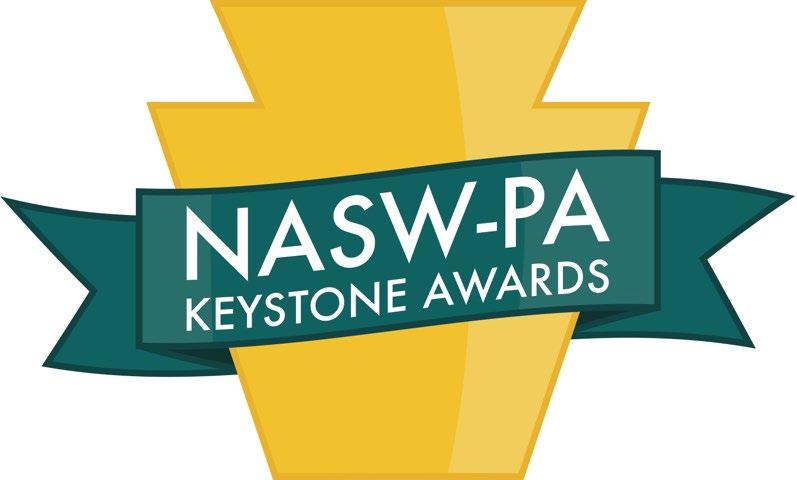
We cordially invite you to attend the annual Keystone Awards gala, which recognizes excellence in the social work community within the Commonwealth of Pennsylvania. Awards are given recognizing excellence in social work and within the community at large. The evening also includes the annual Keystone Address, which is always inspirational. Join us to celebrate the strength of the profession!
Keystone Address: Toya Jones, PhD, LCSW

Dr. Toya Jones is an Assistant Professor and Director of the Bachelor of Arts Social Work program at the University of Pittsburgh. She is the founder and president of Freedom Indeed LLC, an organization that focuses on serving and empowering ex-offenders and victims of crime, and the Clinical Director of Operation Amini, an organization that focuses on providing groups (gangs) and ex-offenders the services needed to prevent future incarceration and gun violence related criminal activity. She has earned a bachelor’s degree in psychology from the Indiana University of Pa, a master’s degree in social work, and a doctorate in Education from the University of Pittsburgh. Her current research focuses on trauma reactions in social work students, increasing the awareness of PTSD and self-care techniques among social work students, assessing burnout among BIPOC students, and integrating CBT and faith in the black church community. She is the host of her Facebook and YouTube show, Healing Overflow with Dr. Toy.
Dr. Jones is an expert trauma witness and consultant for the United States Federal Courts. She has extensive experience working with the incarcerated population and returning citizens who have been affected by crime. She has counselor-legal advocacy, crisis management, conflict resolution, and mediation experience, working with both victims of juvenile crime and the adult criminal justice system. Dr. Jones provides trauma-focused therapy, and community education programs for those exposed to violence. In addition, she facilitates trainings for practitioners, professors, and students in Asia, East Africa, and the USA. She lectures for universities, school districts, religious organizations, and private corporations on topics such as The Impact of Trauma on Children, Adults, and Communities, Cognitive and Behavioral Effects of Racial Trauma, Signs and Symptoms of PTSD, Vicarious Trauma, Trauma Aware Pedagogy Practices, Trauma, and the Incarcerated Population, and treatment modalities such as Trauma-Focused Cognitive Behavioral Therapy (TF-CBT), expressive and play therapies for those impacted by trauma. She is a board member of the Woman’s Center and Shelter, Hammonds Initiative, and Melanin Mommies. She is married to Rev. Cornell Jones and the proud mother of two children, Cornell “CJ” Jones age 16, and Naomi Jones age 12.
24
October 24, 2023 7:00 – 10: 00 PM | 1CE
Tuesday,
Tuesday, October 24, 2023 10: 00 PM –
REMEMBERING MIT JOYNER, PENNSYLVANIA SOCIAL WORK PIONEER
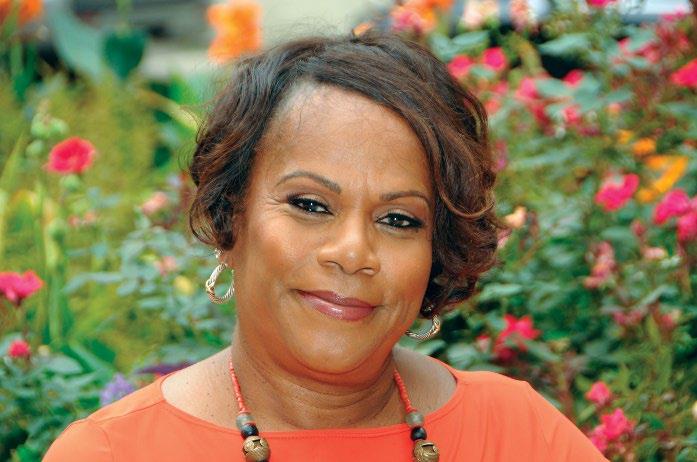
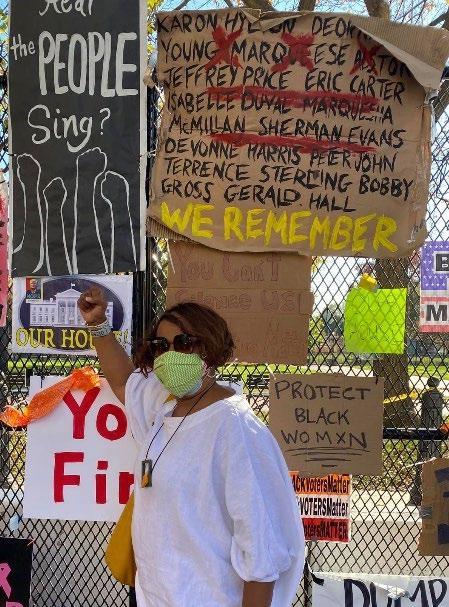
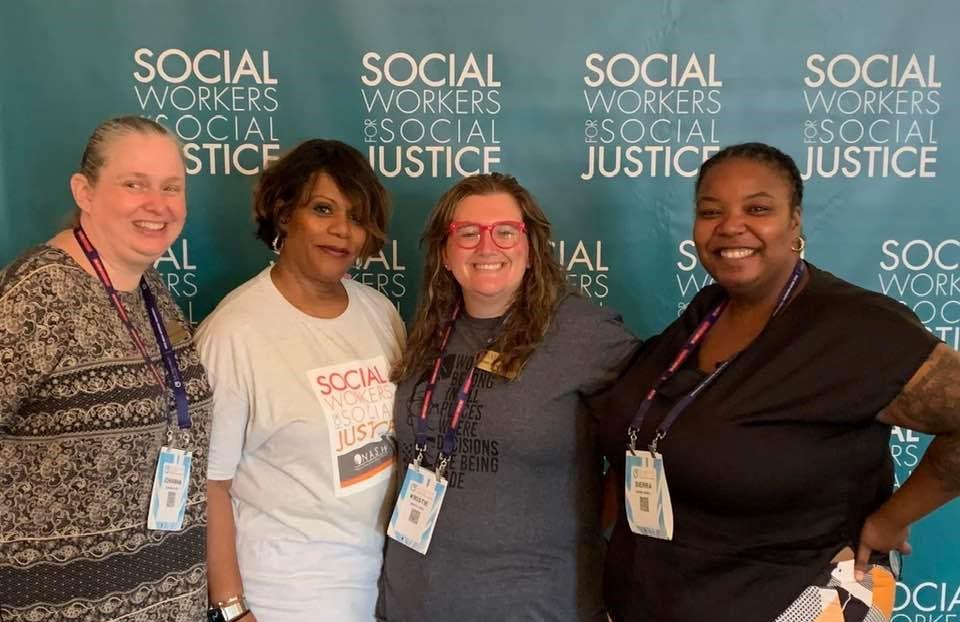
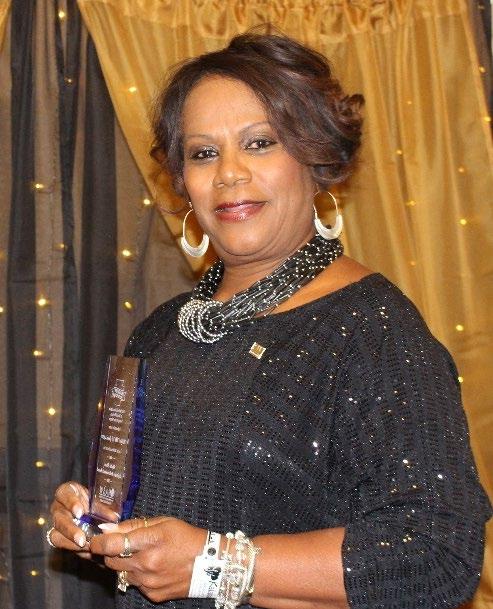

Immediately following the Keystone Awards Gala (although you DO NOT need to be registered for the Gala to attend), we will step outside onto the patio and firepit area to have a fireside and candlelight rememberance for the recently departed legend of the social work profession, Mildred “Mit” Joyner, DPS, LCSW. Mit served as national NASW President until shortly before her death in July 2023. She was one of only a handful of people who have served as President of NASW, CSWE, and BPD. She was initiated as a social work pioneer, and was recognized as the recipient of NASW-PA’s Lifetime Achievement Award in 2019. A lifelong Pennsylvania resident, President Joyner began her career as a child welfare worker in the Chester County Children, Youth, and Families Agency. She then held leadership positions at West Chester University School of Social Work for more than 25 years, establishing the first MSW program in the Pennsylvania state system of higher education. More than anything, Mit is remembered for her commitment to advocacy and social justice…and for the incredible love and support she gave freely to her family and those who knew her.
Whether you knew Mit well or you only know of her, you are invited to come share your memories and hold up her legacy with the honor she deserves after a life devoted to the profession of social work.
25
(A31) - ACT 31: Child Abuse Prevention –
This is the training on mandated child abuse reporting that is required of all licenses health care practitioners for initial licensure or for biannual renewal Please note that this year, attendees are also given the option of attending an online Act 31 training that will be provided after the conference at no additional cost.
(DP, ETH, ST) - Connecting to Nature for Self-Care and Wellness
Tami Micsky, DSW, LSW, CT, Assistant Professor, MSW Program Director for Social Work Program at Slippery Rock University of Pennsylvania
During this time period, conference attendees may choose EITHERONE3.0 HOUR SESSIONORTWO1.5HOUR SESSIONS. Please note these sessions are held concurrently
Tracy L. Leet, LCSW, Professor at Keuka College, Slippery Rock University and Pennwest Edinboro University
This workshop will educate participants about the value of nature-based strategies for improving wellbeing. Participants will be introduced to the rationale, evidence, and benefits of nature-based approaches for “breaking barriers” to self-care and wellness. The workshop will include a “field trip” to a nearby trail to put these techniques into practice.
(NOTE: Weather permitting we would like to ask participants to head with us outside, which requires out-of-doors attire – sturdy footwear, etc.)
(DP, ST) - Medical Social Work: Breaking Down Barriers that Span Across Child, Family and Community Systems
Carrie Sewell-Roberts, LCSW, Social Work Supervisor, Nemours Children's Hospital - Delaware
Emily Jackson, LCSW, Supervisor at Nemours Children’s Hospital – Delaware
Raina Carwell, MSW, Medical Social Worker in the Neurology and Neuromuscular Department at Nemours Children’s Hospital – Delaware
The dynamic, multi-systemic, multi-disciplinary work of a pediatric medical social worker breaks down barriers that span across client, family, and community systems. In this 3-hour, interactive workshop, we will be discussing how medical social workers address resource, hospital discharge, and healthcare delivery barriers in the inpatient and ambulatory settings. We will introduce a biopsychosocial assessment tool that our team at Nemours recently developed informed by NASW guidelines for social work practice in healthcare settings and discuss how our team utilizes this tool in conjunction with the Care Plan tool in the EPIC Hyperspace medical record environment to plan and execute social work interventions in the hospital and clinic settings (including to facilitate preoperative planning and facilitate effective discharge planning). We will discuss how the Psychosocial Assessment Tool (PAT)
26 WEDNESDAY, OCTOBER 25, 2023 7:30 – 8:30 AM Continental breakfast & Recruitment Fair Wednesday, October 25, 2023 8:30 – 11:30 AM | 3hrs. | 3CEs
created by Anne Kazak, Ph.D., has been adapted to meet the needs of special populations and is now utilized in multiple clinic and inpatient settings within our organization. We will discuss how our team utilizes grants and other resources and builds and maintains community partnerships to enable creative interventions to meet the needs of patients and families. And we will demonstrate how effective multidisciplinary partnerships with professionals within the healthcare setting such as pastoral care, Child Life, language interpreters, and others can assist in developing interventions that promote healthcare equity and maximize cultural sensitivity within healthcare environments. Finally, we will address high psychosocial risk situations, such as suicidal ideation in pediatric patients and concerns for child maltreatment, and the execution of evidence-informed, multisystemic interventions that span across the inpatient and outpatient settings to address and minimize risk. This workshop will be highly interactive, with multiple opportunities for small group work and discussion.
Wednesday, October 25, 2023
(AM, DP, SJ/SP, LGBT) - Queering Social Work Practice: Strategies for Affirming Engagement and Assessment with LGBTQIA+ People
Erica Maloney, DSW, LSW, Assistant Professor, Social Work Department, Chatham University
During this time period, conference attendees may choose EITHERONE3.0 HOUR SESSIONORTWO1.5HOUR SESSIONS. Please note these sessions are held concurrently .
Over the last several years there has been an alarming increase in legislation and hate crimes targeting LGBTQIA+ people across the US. Just three months into 2023, more than 350 anti-LGBTQIA+ bills have already been introduced in legislatures across the country. This is more than the previous five years combined. Moreover, LGBTQIA+ people are significantly more likely to be unhoused, unemployed, poor, and violently assaulted than their heteronormative peers. Social workers have a mandate to engage in culturally responsive practice with their LGBTQIA+ clients. In light of the current social climate and the increase in hate crimes, it is essential that social workers promote safe, affirming, and culturally responsive spaces for LGBTQIA+ constituents. This interactive workshop will examine real-world examples and readily available resources to improve affirming engagement and assessment at your agency or practice. The presentation will cover topics that include LGBTQIA+ Intersectionality, SOGIE, affirming language, considerations for documentation, risk/protective factors, microaggressions, and safety concerns.
(C, DP, ETH) - “Meeting our Clients where They Are:” What It Means, How to Do It, and the Ethics Behind It
Trish Nye, LCSW, MBA, CAADC, CPRP, CPS, CRS, Peer Support Program Manager II & Victory for Veteran's Grant Operations Manager, St. Luke's Penn Foundation
In order to truly meet our clients, residents, participants and/or patients where they are in their recovery process, we must adhere to four primary practices. First, it is imperative to connect with our clients on a human level, that means working with them as a whole person and not as a diagnosis. Second, we continuously assess for the appropriate stage of change, then adapt our intervention to meet that stage. Third, we have to recognize recovery is not linear and it is important to foster change ever so slowly and resist pushing the goals and outcomes of others. Finally, starting at our first session, explore ways to support our clients in connecting to their communities for purpose and meaning. These four practices are within our control and empower the client to take the wheel in their recovery process.
27
10:00
8:30 –
AM | 1.5hrs. | 1.5CEs
By meeting our client where they are in their recovery journey, we are adhering to the “Social Value: Dignity and Worth of the Person and Ethical Principle: Social workers respect the inherent dignity and worth of the person.”
(C) - Social Work and the Promise of Psychedelic Assisted Therapy: Practice Considerations for CuttingEdge Treatments
Alexandria Jones, MSW Graduate Student, Kutztown University, Andreya Jones Counseling Sex and Relationship Therapy
Gail Serruya, Psychiatrist, Founder, Voyage Healing PC
This workshop will provide an overview of the psychedelic medicines used in therapy, the psychedelic therapies available, a review of a clinical case study, how and when social workers should refer clients to psychedelic therapy, and how social workers can break barriers in the field of psychedelics. Particular attention will be brought to how social workers refer clients to PAT therapy clinics in Pennsylvania, what they do, and how to become a certified psychedelic therapist.
Wednesday, October 25, 2023
(DP, ST, SU) - Suicide is the Symptom, Not the Crisis: Intervention Skills We All Need to Practice
Robert Sweeney, PsyM, Doctoral Candidate in Psychology with the University of Arizona
Matt Fino, LCSW, Psychological Services Specialist
AM |
|
During this time period, conference attendees may choose EITHERONE3.0 HOUR SESSIONORTWO1.5HOUR SESSIONS. Please note these sessions are held concurrently .
Social workers are expected to engage complex clients, de-escalate tension, assess for risk, plan for safety, provide brief addiction and psychological counseling, diffuse interpersonal conflict, link clients with community resources, advocate for change, challenge systemic racism, build constructive relationships, and document services with an awareness of relevant legislation. But people rarely use the techniques they were taught when confronted with a crisis because all those expectations create confusion about what crisis intervention is and isn’t. Starting with what constitutes a crisis and building on that to identify how and where to intervene, this session will demonstrate a simplified model to target the most effective skills already intrinsic in social work. Topics will include the crisis cycle, suicide awareness, safety assessment, de-escalation, and helpful interpersonal techniques drawn from real-world experience combined with current research and psychological theory.
(SJ/SP) - Do It for The Money! School Social Work Salary Trends and Economic Justice
Alice Fischer, MSS, LCSW, Doctoral Candidate, Doctoral Assistant for the Center for the Study of School Social Work, Department of Social Work at Kutztown University of Pennsylvania
John Vafeas, DSW, LSW, Chair of the Department of Social Work at Kutztown University of Pennsylvania
Economic justice advocacy for our clients easily falls under our professional responsibilities, but what about economic justice for ourselves? Become informed about school social work salary trends in Pennsylvania, barriers to discussing salaries, and strategies for advancing economic justice in the profession.
28
10:15
11:45
1.5hrs.
1.5CEs
–
(AM, ETH) - Social Work Leadership and the Imperative of Macro Practice
Patricia McKernan, DSW, LSW, Chief of Staff, Gaudenzia, Inc.
Jessica Cantermen, MSW, Outpatient Director, Gaudenzia, Inc.
Andrew Schmitt, LCSW
The audience will see a panel of social workers from a large human services organization who are actively engaged in macro-practice. They will learn what skills were employed to promote organizational change and how the ingenuity of these social workers expanded services to under-served clients and opportunities to students.
(DP) - Breathing and Blinking: The Intersection of PTSD and TBI
Nancy Mullen, MSW, Executive Director, Youth Outlook/Tidepool Communications LLC
This presentation examines the overlap of Post-Traumatic Stress Disorder and traumatic brain injury (mTBI) with emphasis on the challenge of differential diagnosis and exploration of resources for support and treatment. Developed for counselors, therapists and human services providers working with trauma survivors who have or are suspected to have experienced a head injury, this session reviews the effect of trauma on cognitive development, moves through the shared symptomology of PTSD and mTBI, shares real life experience in concussion and post-concussion care, and ends with an exploration of newer treatment approaches to these co-morbidities.
29
LUNCH & CLOSING KEYNOTE
“Unshakeable Hope in Action: Our Enduring Tradition of Caring”
In his work, “September 1, 1939”, poet W.H. Auden began with, “All I have is a voice” and went on to reflect upon the power of that voice in disrupting divisive narratives spun. The divided world that we collectively occupy does not feel far away from the urgency embedded in Auden’s reflection. This divided context has a unique effect on helpers like social workers – whose collective calling is intrinsically linked to community, beneficence, and connection. This makes it all the more essential for our profession to reflect upon our expansive tradition of caring and the ways in which that tradition remains both unshakable and a mechanism to enact change during critical moments in human history. This keynote will reflect upon the social work profession’s long tradition of social and political action and will explore the transformative and essential power of our enduring tradition of caring.
Lee Westgate, MSW, MBA, LCSW-C (he/him/his) is an out transgender advocate with more than 15 years of professional experience in social work policy, practice, research, and education. He is a board approved clinical supervisor in the state of Maryland, has held numerous organizational leadership roles, and has served as an educational consultant to a variety of associations and organizational clientele. He has served as a medical social worker in the fields of oncology, critical care, as well as in integrated behavioral health settings. Mr. Westgate has participated in a CSWE-sponsored National Trauma Task Force work-group that focused on the intersection of ethics and trauma-informed practice and he was awarded an immersion fellowship through Boston University to study addiction and behavioral health. He has participated in AIDS Education and Training Center on behalf of the University of Maryland, School of Social Work, Baltimore, MD since 2017 and participated in the MidAtlantic AIDS Education and Training Workgroup on COVID and HIV. Mr. Westgate continues to serve as a Clinical Instructor at the University of Maryland, School of Social Work and his scholarship includes integrated behavioral health, clinical work with LGBTQIA+ populations, working with individuals with chronic and life-threatening illness, healthcare policy, and health equity. As a faculty member, he has received numerous teaching awards including the Energize Faculty Award of 2023, Camara Jones Faculty Award of 2022, Innovation in Social Work Award of 2022, Exemplary Faculty Member of the Year Award along with the Dean’s Teaching Award for several consecutive semesters. He has been published in The Journal of Sociology & Social Welfare, The New Social Worker, The Journal of Employee Assistance, Infusion Magazine, Provider Magazine, and Social Work Today.
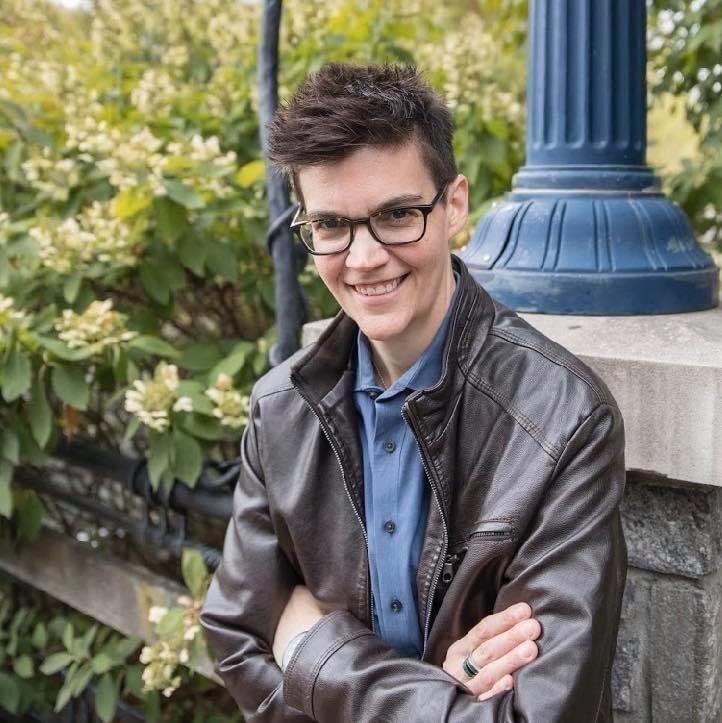
30
October 25, 2023
1:15
| 1hr. | 1CE
Wednesday,
11:45 AM –
PM
(C, DP) – Duty to Warn: What You Need to Know!
James H Andrews, LCSW, LICSW, Associate Professor of Social Work at Penn State, Field Education Director of the World Campus MSW Program
Social workers often confront the issue of duty to warn in daily clinical practice. Yet often, if not most of the time, social workers experience a profound feeling of inadequacy in responding to the duty to warn scenario. This is compounded by the complexity of first-responders and law enforcement involvement in such crisis situations. This workshop is intended to provide clinical social workers with the knowledge and skills to identify, assess and intervene effectively in duty to warn scenarios. The presenter draws from nearly 40 years of clinical experience and direct work with local, state and federal law enforcement agencies (e.g. local police, US Marshall Service, Secret Service etc.) to provide insight and skills in managing this stressful clinical situation.
(C, DP) - Beyond the Screen and the Office: Expanding Psychotherapy Outdoors
Heather Hill, MSS, LCSW, Outreach Coordinator-Philadelphia Ecotherapy
Lauren Kahn, LMFT, Co-founder of Philadelphia Ecotherapy
Krista Nelson, an African American and Lenape grandmother, Activist, Artist, Photographer, Writer, Speaker, and Nature Whisperer
Now more than ever, people are tuning in to the healing power of nature to deal with the increased anxiety, depression, grief, and trauma common to our modern life. Research now proves what has always been deeply held and practiced by indigenous peoples, that living in harmony with nature is not just good for the planet, but essential for all of us to be healthy and whole. In this workshop, clinicians will be introduced to the core principles and theories of ecopsychology, indigenous wisdom, as well as practical and ethical issues when moving therapy out of the office. In addition, we will teach 2-3 ecotherapy interventions from different theoretical frameworks and facilitate participants practicing with each other.
(C, DP, ETH) - Making the Connection Between the Brain and Behavior as Key in Addressing Challenging
Behaviors
Dan Dubovsky, MSW, Independent Contractor
Challenging behaviors are most often viewed as willful behaviors for which consequences need to be imposed so that the person will not exhibit them anymore. However, if we do not think about the cause of the behavior, we will not be effective in addressing it. Understanding the brain basis of behaviors is essential in helping individuals and their families reach their optimal potential. Utilizing Fetal Alcohol Spectrum Disorders (FASD) as a model for other subtle cognitive impacts, we examine how the brain damage caused by prenatal alcohol exposure impacts behaviors that frequently get the individual in difficulties such as substance use and involvement with the justice system. This understanding leads to the recognition that we must change our way of addressing these behaviors. Time out, reward and consequence, point, level, or privilege systems, and other typical approaches will often not be effective in helping the individual change his or her behavior. We present a different way of looking at behaviors and strategies for improving outcomes for all involved.
31
October 25, 2023 1:30 – 4:30
| 3hrs. | 3CEs
Wednesday,
PM
(C, DP, SJ/SP, ST) – Gender-Affirming Approaches for Health Professionals
Kerry Harper, MSW, LCSW, Assistant Professor of Social Work/Director of Field Education, Juniata College
Lee Ann DeShong-Cook, MSS, LMSW, Juniata College, Assistant Professor of Social Work, BSW Program Director, Department Chair
Inclusive and affirming practices are fundamental to the key values of social work practice. Join the presenters through a lens of cultural humility in which together we will explore gender affirming approaches for social work and other health professionals. We will learn about the circles of sexuality, memorize key gender terms and definitions, identify and understand gender concepts most relevant to the patients and clients we serve, discuss the use of non-gendered language, and learn ways in which we can promote affirming approaches of care to best serve our clients. Finally, participants will engage in a time of reflection and action goal planning based on identifying something learned during the workshop in which they want to work on individually, within their team, and/or within their organizations.
(C, ETH) - Shinrin Yoku, CBT, & Biofeedback: A Multiprong Approach to Tackle Anxiety
Noël Hiers, LCSW, Owner and Lead Consultant of Collaborative Perspectives, LLC
Shinrin Yoku and nature therapy are powerful companions to cognitive behavioral therapy. Research measuring various forms of biofeedback has given us concrete evidence that mindful time in the forest helps people to re-set their parasympathetic nervous system. This workshop will explore multicultural psychoeducational components for reframing and the logistics of how to conduct outdoor walking sessions to tackle symptoms of anxiety, depression, seasonal affective disorder, and more. NASW’s ethical mandate for self-care will also be promoted.
Wednesday, October 25, 2023 6:00 – 9:00 PM | 3hrs. | 3CEs
Bonus Movie & Discussion Session!
(DP) - The Mitchells vs. the Machines | 2021 | PG | 1hr. 54mins.
Directed by: Michael Rianda and Jeff Rowe | Starring: Abbi Jacobson, Danny McBride, Maya Rudolph Discussion led by Johanna Byrd, ACSW, CAE, IOM, NASW-PA Executive Director
It all starts when creative outsider Katie Mitchell is accepted into the film school of her dreams. Eager to leave home and find "her people," her nature-loving dad insists on the whole family driving her to school and bonding on one last totally-notawkward-or-forced road trip. When the trip couldn't get any worse, the family suddenly finds itself in the middle of the robot uprising. From smart phones, to Roombas, to evil Furbys all are united to capture every human on the planet. With the fate of humanity up to the Mitchells, the film includes upbeat mom Linda, quirky little brother Aaron, their squishy pug, Monchi, and two friendly, but simple-minded robots teamed up to save humankind!

32


